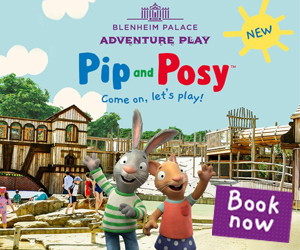Primary Times - the definitive what’s on and where to go family guide of activities and events for children of primary school age. Things to do with your kids during the school holidays including arts and craft activities, music and theatre for children, parties, competitions, days out, and family attractions along with term time drama schools, dance classes, after school clubs and sports activities. Things to do at a place near you!
Fostering Future Environmental Stewards: A Guide for Teachers
 The Chester Zoo Conservation Education and Engagement Team
The Chester Zoo Conservation Education and Engagement Team
Our formative school years can be transformative in our approach to the world around us.
For this generation, and subsequent ones, the largest existential question will be their approach to environmental stewardship. Through all the noise of adult life, how can we ensure we address issues like climate change, biodiversity and responsible consumption?
A crucial part of the answer lies in education. To understand that many of our choices in life – even the grocery products we want to buy – have a direct impact on the supply chain. Whether the product was made sustainably and if essential ingredients like sustainable palm oil (SPO) are used.
Why Focus on Sustainable Palm Oil?
Palm oil is one of the most widely used vegetable oils today, found in 50% of products on supermarket shelves.
Unsustainable palm oil production practices can lead to severe environmental and social consequences, including deforestation and habitat destruction.
However, sustainable palm oil practices aim to prevent deforestation, support local economies, and ensure that palm oil production is environmentally and biodiversity friendly. It is also very efficient. According to the WWF (World Wide Fund for Nature), palm oil yields are far greater than other vegetable oils, with alternatives needing up to 10 times more land for production, potentially causing more environmental impact.
This makes it an ideal topic for classroom discussions on responsible sourcing.
SPO in the Classroom
1. English – Advocacy through writing and design: Challenge students to champion sustainable palm oil! They can write persuasive letters or create posters/digital campaigns highlighting its benefits (like land efficiency: palm oil supplies 35% of the world’s vegetable oil from just 10% of the global land dedicated to oil crops). This empowers them to be advocates for a greener future.
2. Art and Design – Crafting environmental messages: Students can explore the impact of palm oil production through a rainforest mural. Alternatively, they could create a collage of mixed media and foliage to represent rainforests, wildlife, and the effects of deforestation. Malaysia, as a leading producer of palm oil that has increasingly adopted sustainable practices to protect its rainforests and wildlife, could be the muse too!
3. Design and Technology – Building and designing for change: Challenge students with projects promoting sustainable practices! They could create brochures or models showcasing the benefits of RSPO (Roundtable on Sustainable Palm Oil)-certified palm oil, which reduces deforestation and protects biodiversity.
4. Physical Education – Exploring ecosystems with older residents: Combine physical activity with environmental education by organising a local nature walk with older residents or elderly relative. Noting changes in land use, bird populations and technology. Consider how adverse changes could be change – for instance, research by Chester Zoo shows sustainable palm oil plantations can coexist with rich biodiversity if managed correctly.
5. Music – Creating a rainforest soundscape: Immerse students in a rainforest soundscape that connects them with the natural world and fosters appreciation for this unique environment. Soundscapes can be created by tasking student to bring household items into school.
6. Computing/Social Media – Digital storytelling: Students can use digital tools to create animated videos or social media content about the journey of sustainable palm oil from farm to product.
7. Science – Investigating ecosystems and biodiversity: Using Google Maps, students can conduct forest mapping experiments across our global rainforests, noting urban encroachment.
8. Geography – Mapping the impact of palm oil production: Students can learn about the geographical distribution of palm oil production and its social and economic impact to local communities.
9. History – Tracing the evolution of forest conservation: Research the historical deforestation and conservation efforts; creating timelines and presentations to explore past practices and current efforts to protect rainforests. Chester Zoo’s conservation programmes show how these efforts can restore landscapes and support biodiversity recovery.
Integrating sustainable palm oil into the curriculum fosters critical thinking, creativity, and ethical choices in students. Engaging activities can inspire them to become responsible consumers and advocates for a sustainable future.
Find out more about Chester Zoo’s education programmes!
The Chester Zoo curriculum goes beyond learning objectives, empowering young minds with conservation-focused activities that ignite a passion for protecting our planet.
 Ferrero, a leader in sustainable palm oil, is proud to support Chester Zoo's education programme. The company is committed to using responsibly sourced palm oil, and was ranked 2nd in the 2024 WWF Palm Oil Buyers Scorecard, which evaluates global companies on their commitments and actions.
Ferrero, a leader in sustainable palm oil, is proud to support Chester Zoo's education programme. The company is committed to using responsibly sourced palm oil, and was ranked 2nd in the 2024 WWF Palm Oil Buyers Scorecard, which evaluates global companies on their commitments and actions.
Dive deeper with Chester Zoo's resources where you’ll find complete lesson plans (Years 3-6 & KS3) on sustainable palm oil and inspiration for long-term school planning. You can also download the PalmOil Scan App – developed by Chester Zoo and partners – to understand which products use sustainable palm oil.
Let's embark on this journey of discovery together, making a difference one lesson – and one choice – at a time.




